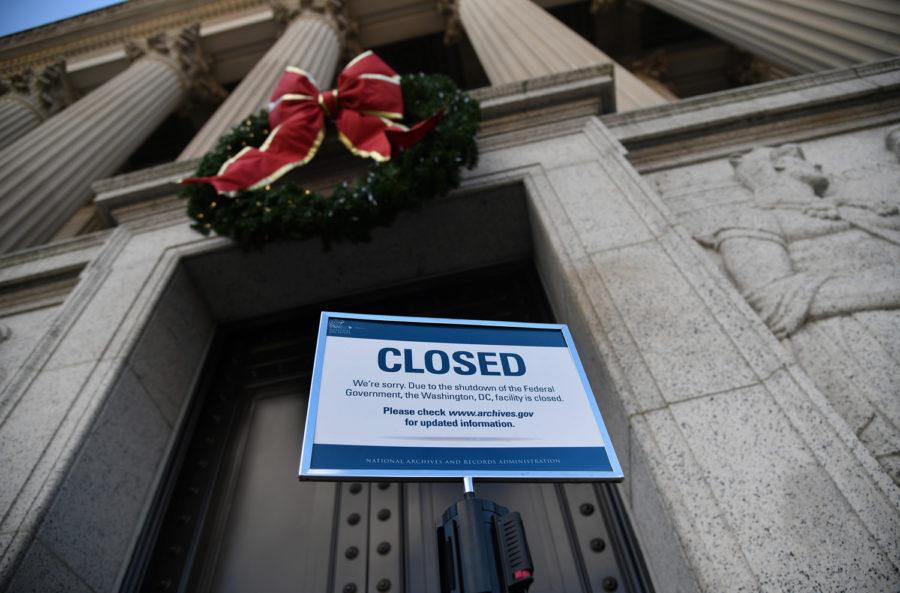Editorial: Trump needs to compromise on wall
Olivier Douliery/ Abaca Press/TNS
A sign announcing closure of the National Archives due to a partial government shutdown is displayed on Dec. 24, 2018, in Washington, D.C.
January 8, 2019
He not only based a presidential campaign, but staked his entire political reputation on the promise of a 2,000-mile wall across the U.S.-Mexico border, with “a big, fat beautiful door right in the middle.”
The details of what exactly constitutes a wall have changed, but President Donald Trump is still asking Congress for $5.6 billion to fund the construction of some sort of physical barrier at certain points along the border, while also obtusely holding federal employees hostage to his refusal to compromise.
We’re entering the third week of a government shutdown with no definitive end in sight. The shutdown is a result of Trump’s rejection of several federal budget proposals made by Congress. Without a budget, more than 800,000 federal employees across the country are either furloughed or working without pay. Combined, these people make more than $1.4 billion per week, comprising a significant economic impact.
Trump has refused to sign several proposed bills, which would have allotted funding of $1.3 billion and $1.6 billion to border security with the stipulation that the money couldn’t be used to fund a wall. The president also shot down a proposal from Vice President Mike Pence for $2.5 billion to fund border security, also with none of that money to go to building a wall.
It seems the president will settle for no less than $5.6 billion. In fact, he’s so unwilling to compromise that he said Friday he would be willing to keep the government partially shut down for “months or even years” until he gets all the money he wants for his wall. He even threatened to declare a national emergency to bypass congressional approval to build the wall.
These threats put many government employees in precarious positions. According to a 2017 study by CareerBuilder, an employment website, 78 percent of U.S. workers live paycheck to paycheck. While back pay might be given to those workers who continue to work without pay during the shutdown, many can’t afford to miss even one paycheck. Some depend on their pay to get to work, which is something they may not be able to continue doing if the shutdown persists.
But it’s not just federal employees whose lives could be put in limbo in further weeks of the shutdown — Americans who depend on federal funding could also be hurt. The Department of Agriculture says it’s not sure how long it can continue its food stamps program for lower-income Americans, but White House officials don’t think it can last through February. This could be a problem for almost 39 million people who depend on food stamps, if the shutdown continues as long as the president thinks it could.
The shutdown also poses a threat to airport security. Transportation Security Administration officers are deemed “essential” government employees and have to report to work without pay. Hundreds of TSA officers have called in sick since the shutdown started, which could result in a security problem for understaffed airports.
With so many livelihoods on the line, Trump’s refusal to budge on the budget is ridiculous. He needs to put aside his ego long enough to agree to a compromise, or else the consequences of a prolonged government shutdown will be serious for many Americans.








